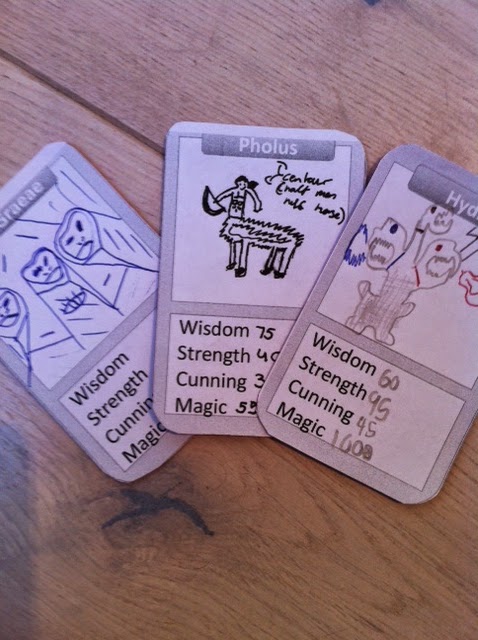 |
| Zedonk - overdoing the cuteness |
Language work saw an introduction to nouns that have genders, and how adjectives need to agree in gender with their noun. Plus we discovered the similarities between wasps and motor scooters (the word 'vespa' and the buzzy noise that they make).

Top effort on home tasks, with even more suggestions flowing in for links between Latin and modern words (left). And here's the start of our Mythological Top Trumps deck (right) - keep those cards coming in, we need as many as possible.
 |
| She's got wings and feet - she's a pteropod |
Here's a selection of our new mythological creations...
 |
| A Minodactyl: wouldn't want to meet one on a dark night |
 |
| Klaudiusz' Biocephian - surely the next Dr Who alien? |









